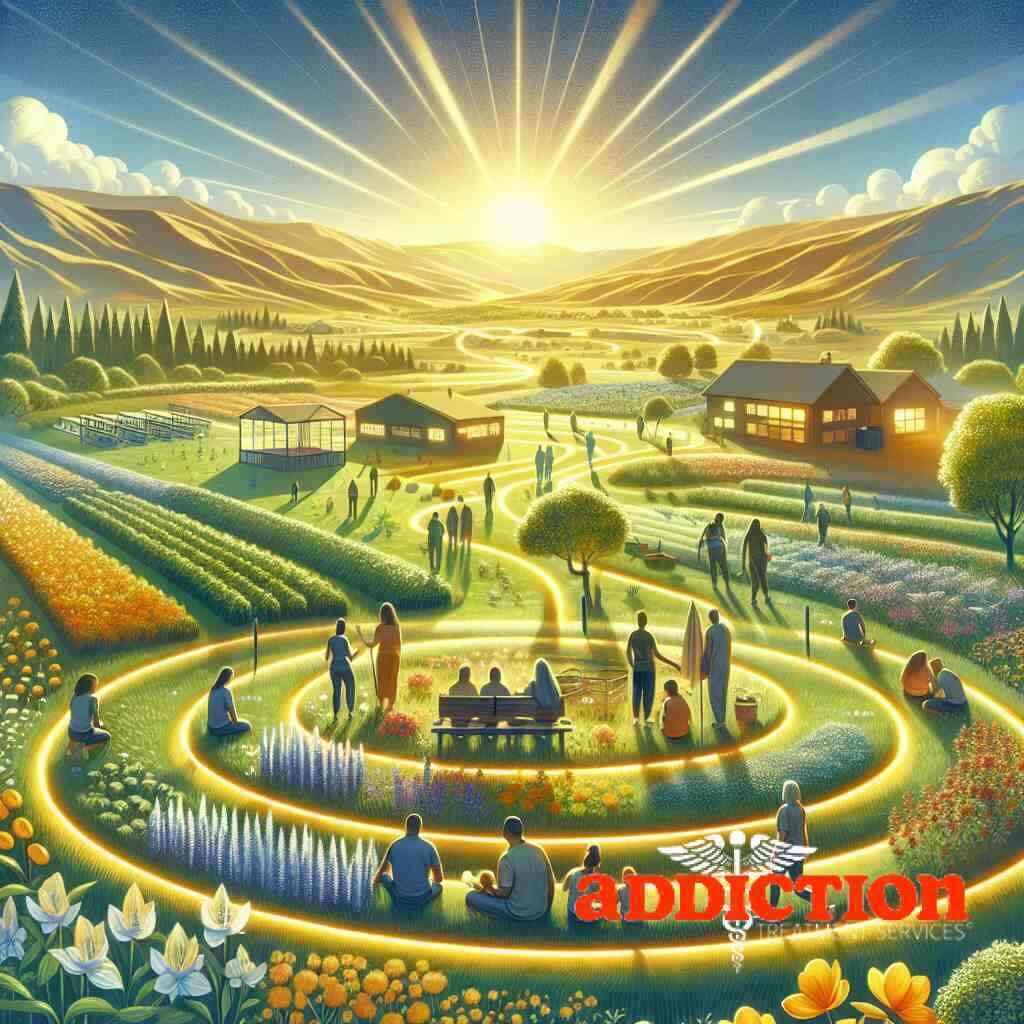 Posted On: 04/17/2025
Posted On: 04/17/2025Embarking on the Journey of Recovery
Understanding the Complexity of Addiction
Addiction is a multifaceted and often misunderstood condition. It’s crucial to appreciate and understand addiction behaviors as the first step towards effective treatment. Substance use disorders don’t discriminate; they affect individuals from every walk of life and manifest differently in each person. This complexity arises from a combination of genetic, environmental, and psychological factors. Understanding the roots of addiction is essential for developing comprehensive recovery strategies that address the unique needs of each individual.
The First Step: Embracing Change
Acknowledging the need for change is a monumental first step in the recovery process. This acceptance marks the beginning of a transformative journey. Recognizing the problem involves understanding the detrimental effects of substance misuse on various aspects of life, including health, relationships, and career. Once an individual embraces the necessity for change, they can begin to explore effective addiction treatment services that offer personalized care, setting the stage for meaningful recovery.
Identifying Signs of Withdrawal and Need for Treatment
Withdrawal symptoms are often the catalyst that prompts individuals to seek help. These symptoms range from physical discomfort to severe emotional distress, underscoring the body’s dependence on substances. Identifying these signs is critical for determining the appropriate level of care needed, whether it’s outpatient care or residential treatment. Early intervention plays a significant role in managing withdrawal symptoms and minimizing the risk of relapse, ultimately guiding individuals towards recovery support systems and sustainable sobriety paths.
The Core Pillars of Effective Treatment
Crafting Personalized Treatment Plans: A Pathway to Success
Developing personalized treatment plans is essential for successful addiction recovery. Each individual’s struggle with addiction is unique, requiring customized approaches that align with their specific needs and circumstances. These plans utilize comprehensive assessments to identify the most effective strategies, ensuring a tailored and client-centered approach. By focusing on individualized goals and leveraging diverse therapeutic options, individuals can achieve optimal outcomes and embark on sustainable recovery journeys. Consider individualized care in Michigan as an example, where treatment facilities prioritize personal assessments to craft effective recovery plans.
Integrating Evidence-Based Treatment Approaches
Incorporating evidence-based treatment approaches significantly enhances the effectiveness of addiction treatment. This methodology combines scientifically validated therapies, such as cognitive-behavioral therapy (CBT), with ongoing research data to improve therapeutic interventions. Ensuring a grounded, scientific basis for treatment programs not only builds trust but also produces measurable results. These approaches address both the physical and psychological aspects of addiction, fostering an environment where recovery is achievable and enduring.
Unraveling Behavioral Therapies for Sustained Recovery
Behavioral therapies are foundational to achieving lasting recovery from substance use disorders. These therapie,includeg techniques like cognitive-behavioral therapy and contingency management,as well as target behavior modification and coping mechanisms. By integrating behavioral therapies, individuals learn to replace harmful patterns with healthier ones. As a result, these therapies promote resilience against relapse and empower individuals to maintain sobriety through self-awareness and proactive management of triggers.
The Role of Medication-Assisted Treatment in Long-Term Sobriety
Medication-Assisted Treatment (MAT) plays a crucial role in maintaining sobriety, particularly for individuals grappling with opioid and alcohol dependencies. MAT combines FDA-approved medications with counseling and behavioral therapies, creating a comprehensive treatment strategy. This holistic approach helps manage withdrawal symptoms and reduces cravings, significantly decreasing the likelihood of relapse. By enhancing treatment adherence and supporting sustained recovery, MAT is an invaluable component of modern addiction treatment paradigms.
Addressing Dual Diagnosis: Integrated Treatment for Co-Occurring Disorders
Effectively treating co-occurring mental health and substance use disorders, known as dual diagnosis, necessitates integrated treatment services. Addressing both disorders concurrently is vital for successful recovery, as untreated mental health issues can exacerbate addiction symptoms and vice versa. Treatment plans should encompass understanding dual diagnosis care, focusing on comprehensive therapy that targets both the mental health aspect and the substance use disorder. By doing so, individuals can experience holistic healing and improve their quality of life, ultimately achieving long-lasting recovery.
Support Structures and Holistic Approaches

Empowering Family Involvement in the Recovery Process
In the journey toward recovery, family involvement plays a pivotal role in supporting an individual’s progress. Acknowledging the role of family in addiction recovery creates a nurturing environment that can significantly enhance treatment outcomes. Families are not just passive spectators; they serve as active participants by providing emotional support, stability, and encouragement. By understanding addiction dynamics and participating in family therapy sessions, family members can better support the recovery process, helping to rebuild and strengthen familial bonds. This collaborative approach empowers individuals to confront challenges with a robust support system, laying the groundwork for sustainable sobriety.
Recovery Support Systems: Building a Therapeutic Community
Establishing a therapeutic community is essential for fostering a sense of belonging and purpose during the recovery journey. Interaction within a supportive network improves social connections, enabling individuals to share experiences and encouragement. This engagement in therapeutic communities aids in developing healthy habits and reinforces positive changes. By promoting peer interactions and accountability, therapeutic communities act as an essential component of addiction recovery services. They offer a safe space where individuals can explore their challenges and celebrate their progress, cultivating an inclusive environment that promotes personal growth and reinforces long-term recovery objectives.
Sustainable Sobriety: Relapse Prevention Strategies and Techniques
Successful addiction treatment hinges on robust relapse prevention strategies. These strategies equip individuals with tools to anticipate and manage triggers effectively. By employing cognitive-behavioral techniques and raising awareness about high-risk situations, individuals can identify signs of potential relapse. Relapse prevention involves more than avoiding temptation; it requires lifestyle changes, ongoing education, and support from recovery networks. This proactive approach empowers individuals to maintain sobriety and navigate life’s challenges with resilience and confidence, reducing the risk of setbacks and fostering a sustainable path to wellness.
Developing Coping Skills for Effective Substance Use Management
Developing coping skills is integral to managing substance use and achieving long-term recovery. Addressing emotional regulation, stress management, and problem-solving skills enables individuals to replace maladaptive behaviors with healthier alternatives. Techniques such as mindfulness, emotional regulation exercises, and effective communication strategies enhance emotional resilience. Cultivating these skills helps reduce dependence on substances as a coping mechanism, ultimately fostering a healthier lifestyle. Encouraging individuals to engage in regular practice of these techniques ensures they are well-equipped to face future challenges and maintain sobriety.
Exploring Holistic Addiction Therapy for Comprehensive Healing
Holistic addiction therapy encompasses a wide range of integrative practices focusing on healing the mind, body, and spirit. Utilizing holistic recovery methods near me can provide a more comprehensive approach to addiction recovery. This therapy explores various modalities, including meditation, yoga, nutritional therapy, and acupuncture, which complement traditional treatment methods. By fostering a deeper connection between mental and physical wwell-being holistic therapies promote overall health, reduce stress, and improve quality of life. This integrative approach not only supports recovery but also enriches the individual’s journey by valuing personalized care that respects individual preferences and promotes holistic healing.
Achieving Milestones and Continuous Care
Patient-Centered Care Models: Focusing on Individualized Needs
Patient-centered care models emphasize tailoring services to meet the unique needs of each individual, ensuring a successful recovery journey. This approach involves detailed assessments and collaboration between patients and healthcare providers to design personalized treatment strategies. By focusing on individualized needs, treatment facilities can provide support that enhances engagement and therapeutic effects. The inclusion of flexible options, such as the choice between residential or outpatient treatment, further empowers individuals. These models foster a supportive environment where patients are not just recipients of care but active participants in their recovery process.
Mapping out Addiction Recovery Milestones
Mapping out addiction recovery milestones is crucial for maintaining momentum and motivation throughout the treatment process. Each milestone, whether big or small, signifies progress and encourages continued effort towards sobriety. These markers may include completing detoxification, attending regular therapy sessions, or achieving sustained periods of sobriety. By having a clear roadmap, individuals can track their progress and celebrate achievements along the way. Guide to Selecting the Right Rehab for Your Needs Structured recovery programs, such as those offered by addiction recovery programs in Texas, illustrate the importance of goal-setting in maintaining a focus on long-term recovery paths.
Motivational Interviewing Techniques for Lasting Change
Motivational interviewing is a powerful tool in promoting lasting change in individuals seeking recovery from substance use disorders. This counseling approach involves open-ended questions, reflective listening, and supportive dialogues that help individuals to explore and resolve ambivalence about change. The aim is to encourage self-motivation and reinforce the individual’s commitment to recovery. By facilitating personal insight and motivation, motivational interviewing empowers individuals to take ownership of their recovery journey. This collaborative approach is instrumental in fostering independence and resilience, which are essential in achieving enduring sobriety.
Ensuring Continuous Care and Monitoring Past Initial Treatment
Continuous care and monitoring are pivotal in preventing relapse and ensuring long-term recovery success. After completing initial treatment phases, ongoing support systems become crucial in maintaining sobriety. This includes regular follow-up appointments, participation in support groups, and access to integrated health services in Illinois. Continuous monitoring not only provides necessary support but also helps in the early identification of potential relapse triggers. By ensuring that consistent recovery support services are in place, individuals can feel reassured and confident in managing challenges post-treatment, fostering a sustainable and healthy lifestyle.
Conclusion: A Lifelong Commitment to Wellness
Reflecting on Recovery: The Journey Continues
The journey of recovery extends well beyond the initial phases of addiction treatment. It’s not merely about achieving sobriety but embracing a holistic transformation in lifestyle and mindset. Reflecting on this journey involves acknowledging the unwavering commitment required and celebrating every milestone, no matter how small. The path to recovery is a personal one, with each individual’s experiences and breakthroughs contributing to their unique story. This reflection is crucial as it reinforces the understanding that recovery is a continual process, not a finite destination. By keeping sight of their progress, individuals can remain motivated and resilient, fortified against future challenges.
Redefining Success: Sustainable Sobriety as an Ongoing Process
Sustainable sobriety redefines success beyond the simplistic measure of abstinence. It involves cultivating a balanced and fulfilling life where sobriety is part and parcel of a broader objective: achieving overall well-being. This redefinition acknowledges the dynamic nature of recovery, recognizing that setbacks may occur, but they do not erase progress. By viewing sobriety as an ongoing process, individuals are encouraged to set realistic goals and adapt their strategies as life evolves. Emphasizing strategies to optimize recovery ensures that individuals remain equipped with the necessary tools to navigate their journey effectively, addressing challenges with confidence and foresight.
Building Resilience and Embracing a New Path of Life
Resilience is the bedrock upon which lasting recovery is built. It empowers individuals to confront adversity and recover from setbacks with renewed vigor. Building resilience involves developing coping mechanisms and maintaining strong support networks that provide encouragement and accountability. Top Techniques for Managing Withdrawal Symptoms Near You. Embracing a new path in life also requires an openness to change and a willingness to let go of past burdens. By actively engaging with therapeutic communities and leveraging resources such as addiction therapy options in Florida, individuals can find new avenues for growth. This transition fosters a sense of empowerment, enabling individuals to live purpose-driven lives enriched by their recovery experiences, continually steering toward a brighter, healthier future.
Frequently Asked Questions
Question: What are some key elements of effective addiction treatment that Addiction Treatment Services offer to ensure successful recovery?
Answer: Addiction Treatment Services focuses on several key elements of effective addiction treatment to ensure successful recovery. One of the primary components is the development of personalized treatment plans that are tailored to the individual needs of each person seeking help. This ensures that every patient receives care that is specific to their circumstances, addressing both physical and psychological aspects of addiction. How Addiction Treatment Services Integrates Dual Diagnosis Care Additionally, we integrate evidence-based treatment approaches such as cognitive-behavioral therapy and medication-assisted treatment, which have proven effective in managing withdrawal symptoms and supporting long-term sobriety. Our comprehensive recovery strategies also include addressing mental health aspects via dual diagnosis programs, ensuring a holistic approach to recovery.
Question: How does Addiction Treatment Services incorporate family involvement in the recovery process as a part of its addiction recovery services?
Answer: At Addiction Treatment Services, we recognize the pivotal role that family involvement plays in the recovery process. Empowering family members to participate actively in treatment enhances treatment outcomes. We encourage family participation through therapy sessions where they can learn about addiction dynamics and how best to support their loved ones. This approach not only helps rebuild and strengthen family relationships but also creates a nurturing environment that bolsters the patient’s journey to sustainable sobriety. By engaging family members, we’re able to provide a robust support structure that is essential for overcoming substance abuse and achieving lasting recovery.
Question: What are the strategies Addiction Treatment Services employs for effective relapse prevention to support sustainable sobriety?
Answer: Addiction Treatment Services employs a range of strategies for effective relapse prevention, ensuring patients remain on the path to sustainable sobriety. Our approach includes teaching individuals coping skills development, such as stress management, emotional regulation, and mindfulness techniques, which are crucial in managing triggers and high-risk situations. We also emphasize therapeutic community involvement, providing a supportive network where individuals can share experiences and encouragement. By utilizing cognitive-behavioral therapy and motivational interviewing techniques, we equip patients with the tools needed to navigate life’s challenges confidently. Our commitment to continuous care in recovery, including regular follow-ups and access to support groups, ensures that individuals are well-prepared to maintain sobriety and manage any setbacks that may arise.
Question: Howdoess the blog title ‘What Are the Key Elements of Effective Treatment?’ reflect the services offered by Addiction Treatment Services?
Answer: The blog titled ‘What Are the Key Elements of Effective Treatment?’ reflects the core philosophy and comprehensive services offered by Addiction Treatment Services. It emphasizes the importance of client-centered care models, which focus on creating personalized treatment plans tailored to the unique needs of each individual. This approach ensures that evidence-based treatment approaches and effective addiction treatment are central to our services. By addressing both the physical and psychological aspects of addiction, as well as involving family and therapeutic community support, we ensure a holistic and integrated treatment service experience. How Addiction Treatment Services Define Success in Recovery. The blog aligns with our mission to provide a full spectrum of addiction treatment services, helping individuals achieve sustainable sobriety through personalized and effective recovery strategies.
Question: In what ways does Addiction Treatment Services integrate medication-assisted treatment into their programs for long-term recovery success?
Answer: Addiction Treatment Services integrates medication-assisted treatment (MAT) into our programs as a crucial component for achieving long-term recovery success. MAT combines FDA-approved medications with counseling and behavioral therapies to treat substance use disorders effectively, particularly those involving opioids and alcohol. This approach helps in managing withdrawal symptoms and reducing cravings, thereby significantly lowering the risk of relapse. By incorporating MAT, we provide a holistic treatment strategy that supports sustained recovery and enhances treatment adherence. How Does Addiction Treatment Services Define Success? Our commitment to medication-assisted recovery options and continuous care in recovery ensures that individuals have access to comprehensive support that fosters sustainable sobriety and a healthier lifestyle.



